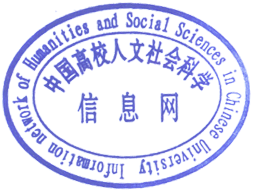关 键 词 :“可要、要管”;原阳方言;语用学科分类:语言学--汉语研究
Yuanyang County, Xinxiang City, Henan Province is located on the north bank of the Yellow River and at the southernmost part of Xinxiang. The Yuanyang dialect is very close to Mandarin, but it also has its own local dialect characteristics. Through reading relevant papers and analyzing the negative words in the local dialect, it is found that other negative words are similar to those in Mandarin, but "ke yao" and "yao guan" are used as negative words differently from Mandarin. "Ke yao" is not used as a negative word in Mandarin, but only means "expectation, about to". "Yao guan" is not frequently used in Mandarin grammar. In the southern part of Henan Province, "guan" is often used with the same meaning as "zhong", but "guan" is not used in the Yuanyang dialect. "Yao guan" is often used to express negation. "Ke yao" and "yao guan" are similar as negative words in the Yuanyang dialect. This paper analyzes the similarities and differences between the two from the aspects of semantics, grammar and pragmatics, and delicately presents the dialectal characteristics of negative words in the Yuanyang dialect.

